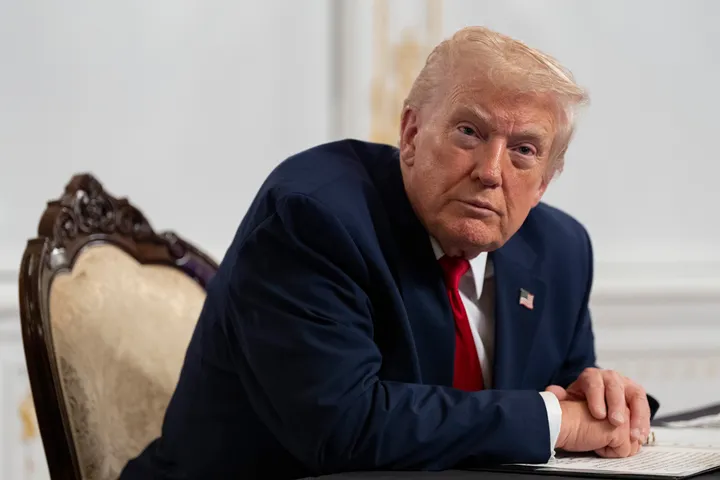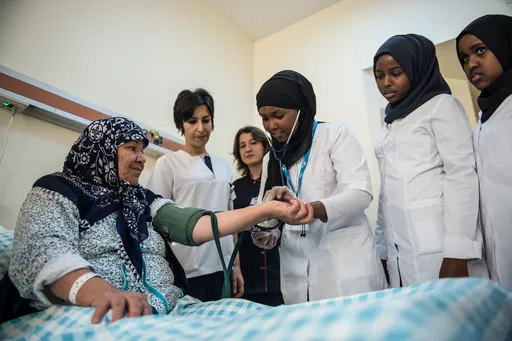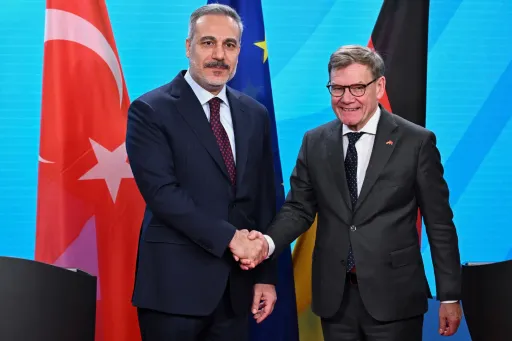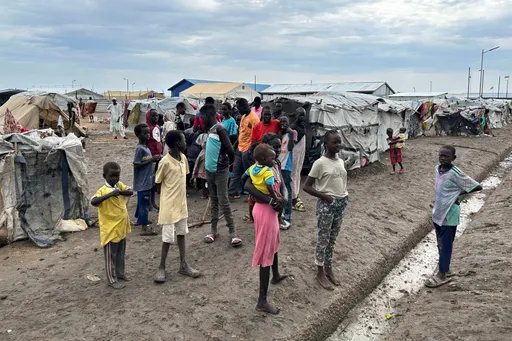By Pauline Odhiambo
As a child, Rokhaya Diagne's mother had a hard time keeping her daughter away from what she feared was becoming an addiction — video games.
Neither Rokhaya nor her mother could have imagined then that her childhood obsession would lay the building blocks for a career in technology focused on using AI to eradicate the scourge of malaria.
"I would return home from school every day, head straight to my brother's room and immerse myself in video games," she tells TRT Afrika. "That's all I lived for until my mother said she would send me to a psychiatrist if I didn't stop."
As her interest in video games eventually waned, Rokhaya moved on to problem-solving of a different kind. This time, the exciting possibilities of AI piqued her curiosity.
Cut to several years later, the now 26-year-old Senegalese innovator's health start-up is blazing a trail in healthcare solutions.
Diagnosis module
Rokhaya's fledgling company, Afyasense — "afya" means "health" in Swahili—has created an award-winning networking app that brings together innovators like her to search for AI-powered diagnostic solutions.
"AI isn't here to replace the human brain or hand. It is there to ensure humans get things done faster and more accurately," says the Dakar-based computer science student.
"Too many people are dying because they don't have the means to get an accurate diagnosis of any disease, especially in remote areas of Africa. My goal is to solve this problem," she says.
After initially studying biology at a polytechnic in Dakar, Rokhaya dropped out following an internship reviewing lab samples in one of the city's major hospitals.
Her passion for "deep learning" — a subset of machine-learning methods based on artificial neural networks – led her to start a disease-detection AI project called Malaria Locator, or Maloc.
"While AI helps computers perform tasks that typically require human intelligence, deep learning involves training neural networks to recognise patterns and make predictions," she explains.
"For Maloc, different microscopes are connected to a computer. An algorithm then determines whether we have a positive test for malaria. It's still a work in progress, but we hope to test it soon.
Africa's tryst with AI
AI adoption in Africa is still limited, with only a few countries, such as Ghana, South Africa, Nigeria, Kenya, Libya, Zimbabwe, Togo, and Ethiopia, making significant progress in this field.
Most African nations lack the essential elements for AI adoption, such as data ecosystems, governance frameworks, and other infrastructure. A limited educational culture of science, technology, engineering and mathematics (STEM) has also hindered the proliferation of AI technology.
Rokhaya considers herself fortunate to be studying what she loves at the Dakar American University of Science and Technology, where practical lessons based on STEM have been instrumental in moulding her ambitions in AI.
"The homework and exams are based on practical lessons, while the projects align perfectly with healthcare technology," says Rokhaya, who will graduate in 2025. "Be it physics or mathematics, the learning-by-doing approach makes AI all the more fascinating."
In this type of applied learning, instructors assign projects to students and expect them to complete them independently.
Rokhaya was once tasked with sending an underwater drone to collect information about fish, seagrass and plants that absorb carbon.
The assignments always aim to solve a local problem, with one project requiring students to build a drone capable of carrying a 100kg payload for a distance of 10km to help relieve the polluting congestion of trucks outside Dakar's port.
Some of the university's joint projects have already yielded promising start-ups, such as Solar Box, which began as an assignment to build a solar-powered electric motorbike.
Rokhaya's most formidable challenge with Maloc has been data collection, which she says can be problematic in technological innovations.
"Some apps can collect data, but sometimes apps are not optimised. This means you need to find other ways of getting the information you need," she explains. "Sometimes, it may take a long time just to digitise the data."
Award-winning innovation
Rokhaya's Maloc has thrived despite all the challenges and won multiple awards, including the Orange Social Venture Prize in Africa and the Middle East, Senegal's national social entrepreneurship award, and US $8,000 in funding. She also bagged 10,000 Swiss francs through the Lafiya Innovator Program with Impact Hub Dakar.
Early recognition of her efforts has made Rokhaya anything but complacent. Indeed, she is more determined than ever to improve healthcare beyond Africa.
As her malaria project gets closer to market fit, Rokhaya is already firming up plans for the future. She plans to next develop AI to detect cancer.
"My goal is to continue innovating in healthcare technology to ensure that whatever I develop has a real impact on community health outcomes," she tells TRT Afrika.
























